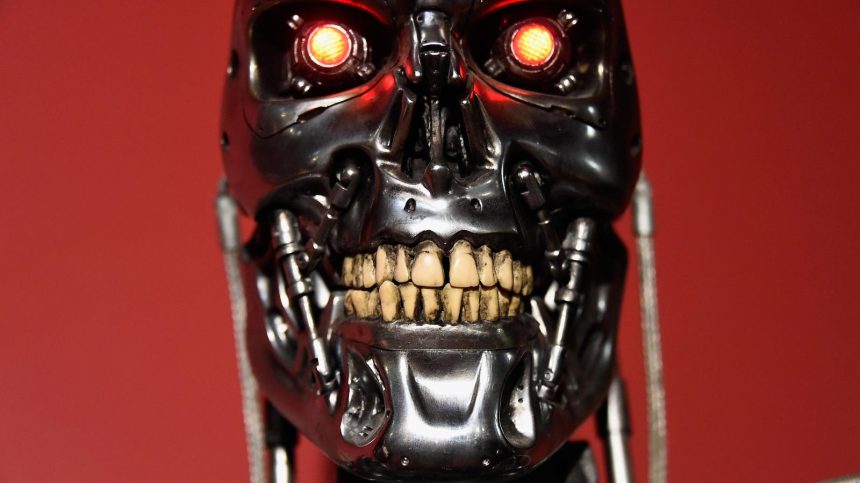Geoffrey Hinton, a prominent figure in the development of artificial intelligence, has issued a stark warning: there is a significant chance, between 10% and 20%, that AI could lead to humanity’s extinction within the next thirty years. This alarming prediction stems from the unprecedented nature of AI, a form of intelligence that surpasses our own. Hinton argues that history lacks examples of a less intelligent entity successfully controlling a more intelligent one, raising serious concerns about humanity’s ability to manage advanced AI. This warning underscores the urgency of addressing the existential risks posed by AI and necessitates a comprehensive approach encompassing regulation, global cooperation, and a revolutionary shift in education.
To mitigate the existential threats posed by AI, a three-pronged strategy is essential: regulating AI development, fostering international collaboration, and implementing a transformative educational framework. Regulation, comparable in scope and impact to the Treaty on the Non-Proliferation of Nuclear Weapons, is paramount. International treaties are necessary to establish safeguards and prevent the unchecked development of potentially dangerous AI systems. However, legal frameworks alone are insufficient. Education, specifically what can be termed “Infinite Education,” emerges as the most potent tool for safeguarding humanity’s future. This innovative approach to education emphasizes the cultivation of uniquely human qualities like empathy, ethical judgment, and character development, fostering individuals capable of collaborating with, rather than competing against, advanced AI.
The traditional, finite model of education is no longer adequate in the face of rapid technological advancements. A paradigm shift towards “Infinite Education” is essential, fostering adaptability and lifelong learning. This approach prioritizes human qualities that are difficult for AI to replicate, such as critical thinking, creativity, and emotional intelligence. The goal is not merely to fill the gaps left by AI in the workforce but to cultivate a generation equipped to thrive alongside intelligent machines. This entails instilling a deep understanding of ethical principles, enabling individuals to navigate the complex ethical dilemmas posed by AI, including algorithmic bias and unintended consequences. Integrating ethics across all educational curricula is crucial to fostering responsible AI development and deployment.
AI literacy is rapidly becoming a fundamental requirement for meaningful education reform. Equipping future generations with the skills necessary to navigate an AI-driven world is paramount. This extends beyond technical proficiency in coding and data analysis to encompass entrepreneurial skills, adaptability, and a commitment to lifelong learning. Educational institutions must evolve into hubs of value creation, preparing students for the ambiguity of the future and empowering them to make meaningful contributions in a rapidly changing landscape. The World Economic Forum projects the creation of millions of AI-related jobs in the coming years, highlighting the immense economic opportunities presented by AI. However, realizing this potential requires not only technical expertise but also the ability to think critically, innovate, and collaborate effectively with intelligent machines.
Addressing the existential risks of AI demands robust regulatory measures and international cooperation. Geoffrey Hinton’s call for regulation has resonated with international bodies like the United Nations. In a world often driven by economic considerations, global oversight is crucial to ensure that AI development prioritizes human well-being. Policies must incentivize beneficial AI research while establishing strict safeguards against potentially harmful applications, such as autonomous weapons systems. A model similar to the Intergovernmental Panel on Climate Change (IPCC) could facilitate international cooperation, enabling nations to establish shared standards and regulations that protect humanity’s interests over short-term economic gains.
The challenges posed by AI should be met with proactive engagement, not fear. “Infinite Education” represents a paradigm shift, focusing on the continuous development of human potential rather than merely competing with machines. This approach fosters resilience and innovation, essential qualities for navigating the complexities of an AI-driven future. Implementing this vision requires systemic educational reform. The emphasis must shift from narrow, test-based assessments to holistic evaluations that consider critical thinking, problem-solving, teamwork, and leadership. Continuous professional development for educators is crucial to ensure they are equipped to guide students responsibly in the age of AI. Ultimately, a societal shift is needed, recognizing education not just as a pathway to employment but as the foundation for lifelong learning, civic engagement, and human flourishing. By embracing “Infinite Education,” we can shape a future where AI augments human progress, rather than threatening our existence. This is not simply about surviving the AI revolution; it’s about thriving within it. Through thoughtful regulation, global collaboration, and bold educational reforms, we can ensure that AI serves humanity’s highest aspirations. Hinton’s warning serves as a call to action, urging us to embrace a new era of cooperation between technology and humanity, guided by shared values and a commitment to safeguarding our collective future.



